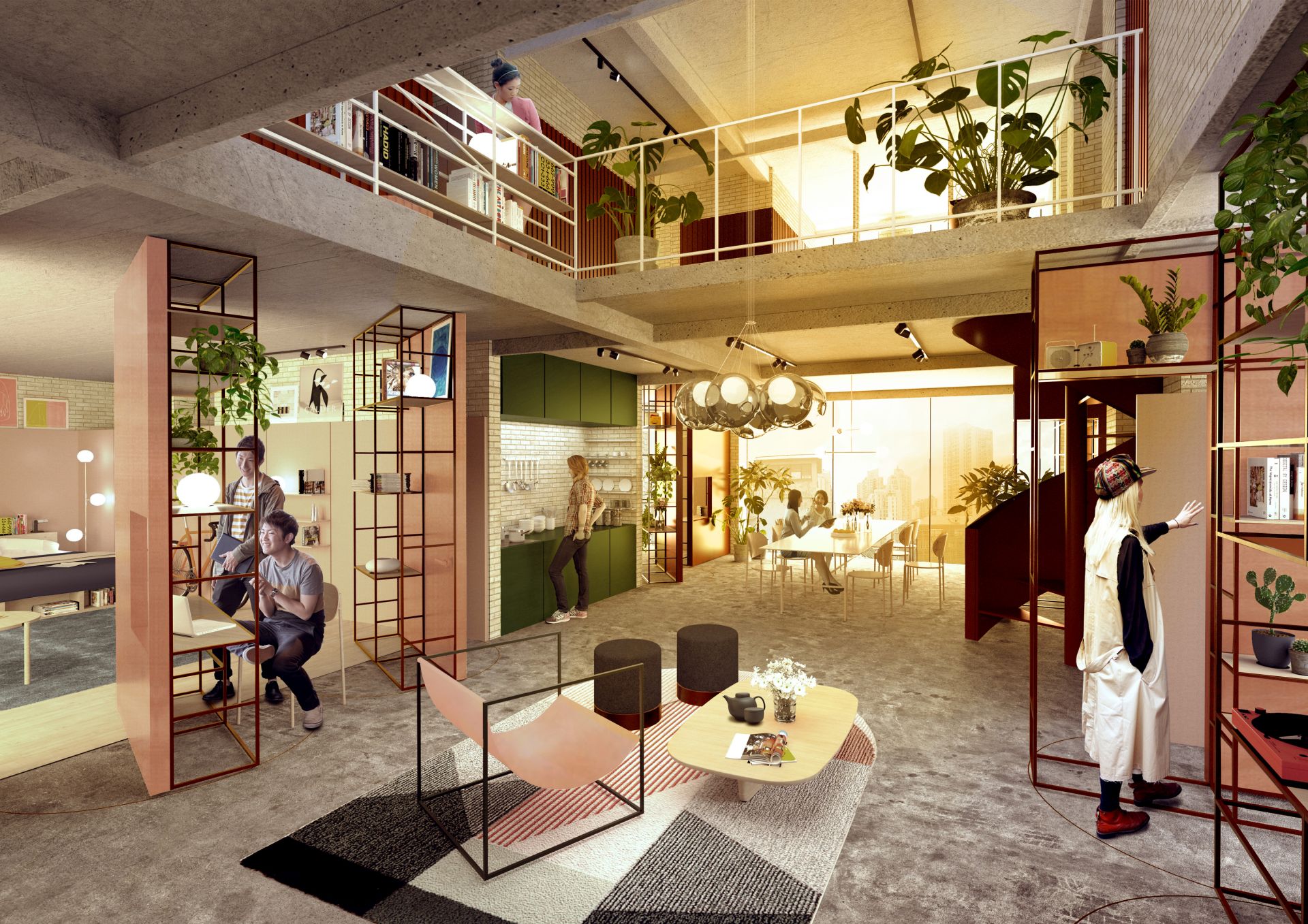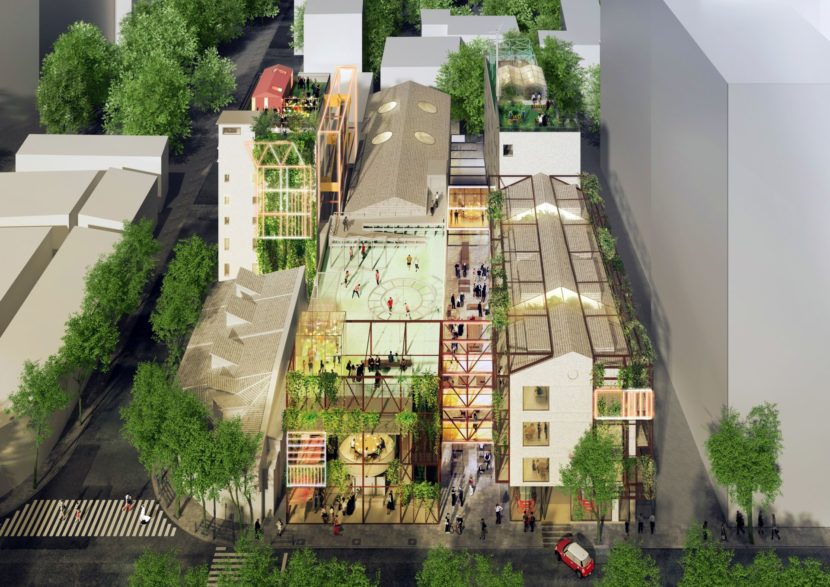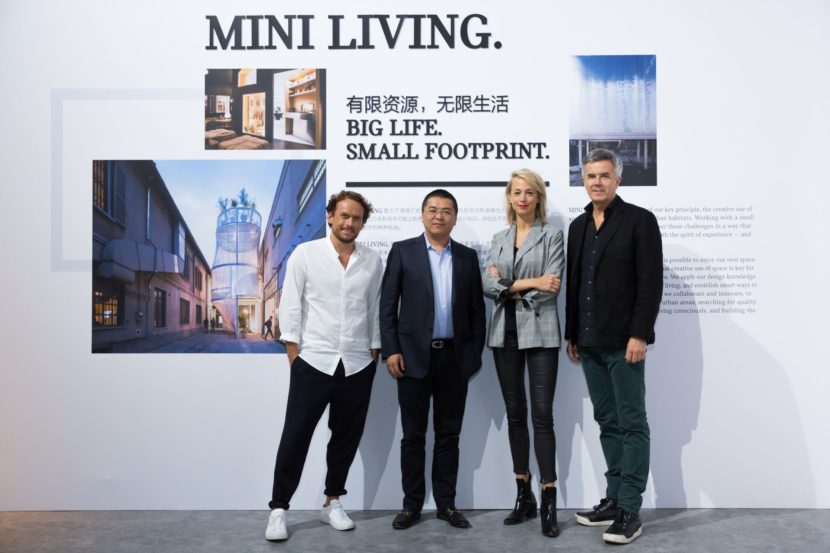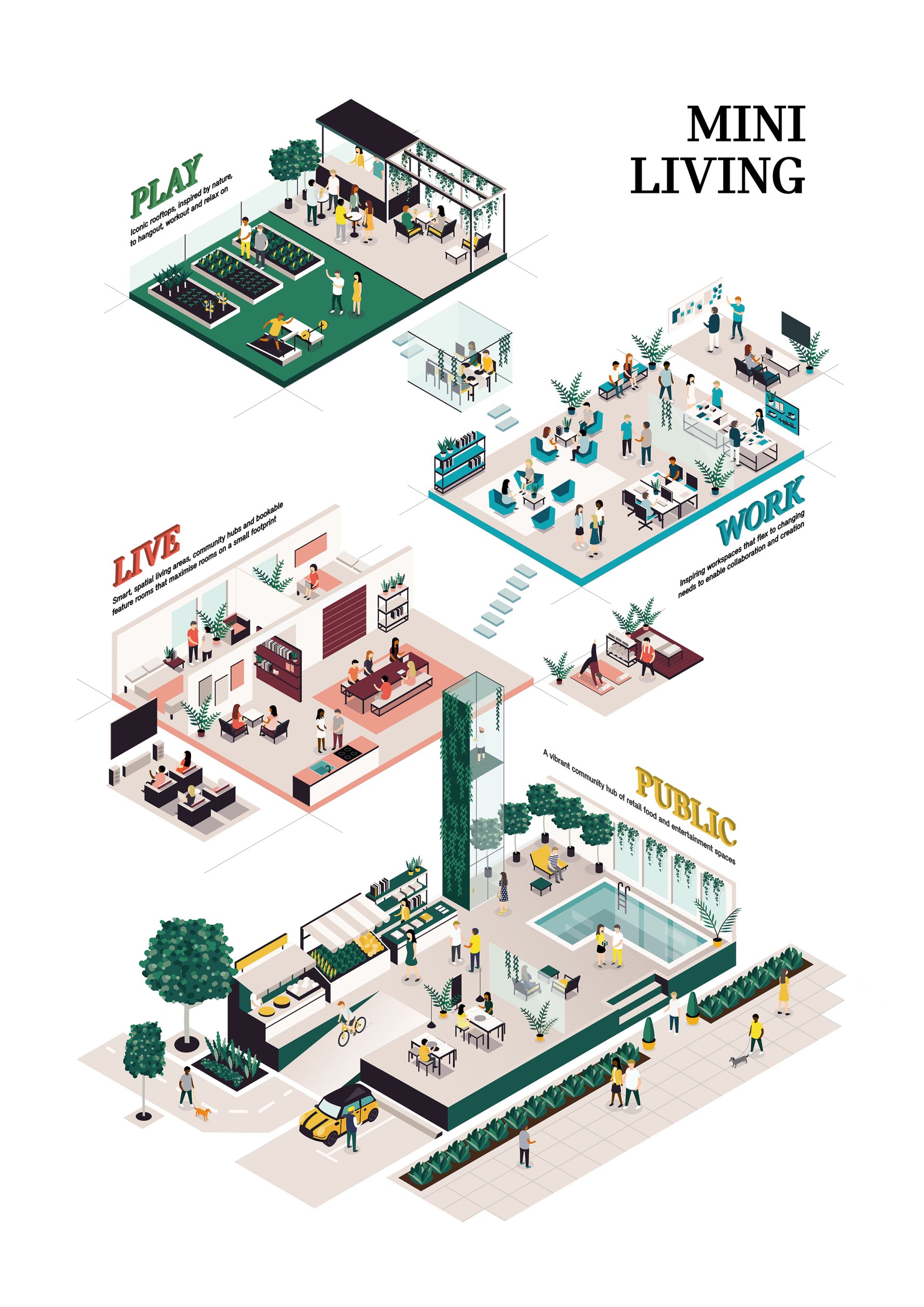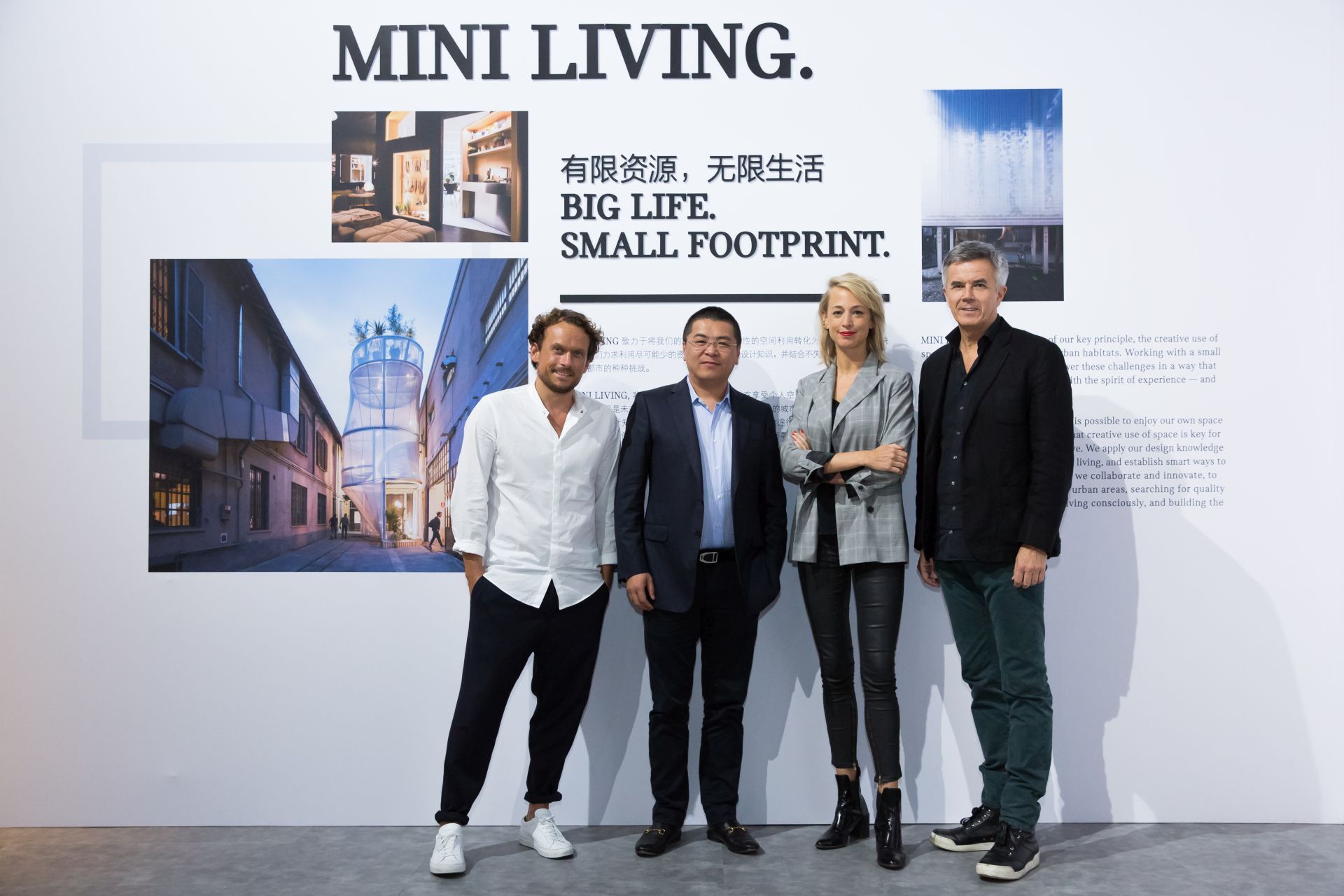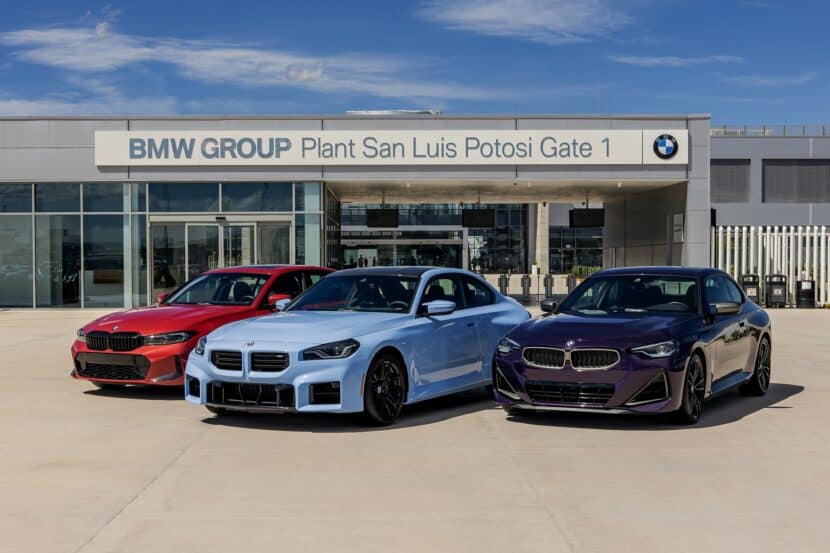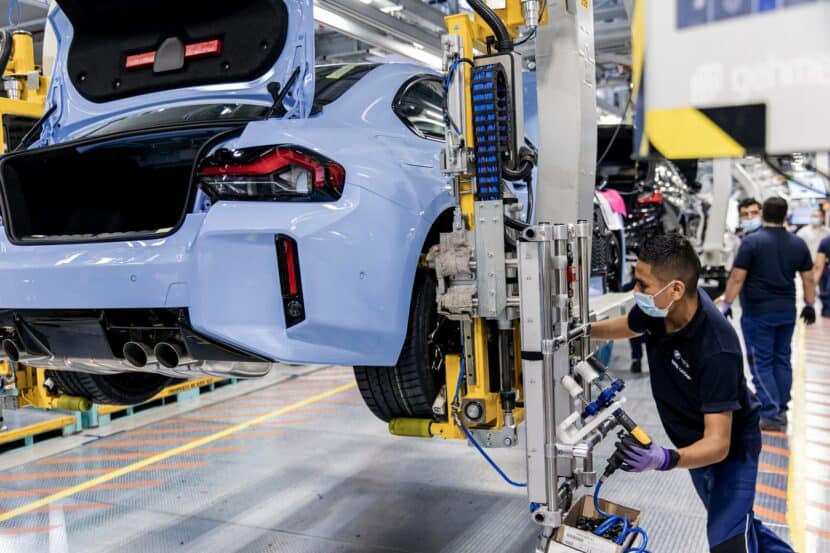A few months ago, MINI has unveiled the MINI LIVING, a future project intending to create a housing concept that’s sustainable and steps a bit in a different direction from what we’ve been getting used to. The idea was to create a living space that solves a number of issues for the ordinary urban dweller of today, where space is often limited and living comfortably might be a challenge. The limited space we get inside big city centers can’t be better emphasized than by today’s megacities in China.
With MINI LIVING, the British brand is addressing these developments and creating the first co-living project in China. Working with a Chinese project developer the company wants to transform an unused industrial complex in the Jing’An district of Shanghai into a multi-layered co-living initiative made up of apartments, working spaces and cultural/leisure offerings. The conversion work is slated to begin before the end of this year but until then we get a glimpse of what’s in the making.
A former paint factory will be transformed into an urban hotspot with generous space for working, interaction and living. Here, MINI LIVING will offer apartments, bookable workspaces and services such as vehicles for shared use as part of a concept enabling maximum personal flexibility and optimum use of space. The MINI LIVING idea that we get more when we share applies not only to the building’s residents but those of the city as a whole. Indeed, parts of the MINI LIVING complex will be accessible to the wider public.
“MINI has always been an urban brand. It not only has its finger on the pulse of the city, it injects that pulse with extra energy,” explains Peter Schwarzenbauer, Member of the Board of Management of BMW AG, responsible for MINI, Rolls-Royce, BMW Motorrad, Customer Experience and Digital Business Innovation BMW Group. “At MINI we are also well versed in the intelligent use of space; back in 1959 the classic Mini was already maximizing the experience available within a very small footprint. MINI LIVING brings this know-how from the vehicles we drive into the places where we live. ” Peter Schwarzenbauer signed the contract with Nova Property at MINI’s Urban Matters brand event in Shanghai at the start of November.
“With MINI LIVING we’re looking to create a genuine alternative within the rental market of big cities,” says Esther Bahne, Head of MINI Brand Strategy and Business Innovation. “We’re offering a place that can adapt to its residents, is flexible and allows room to breathe. MINI LIVING gives residents their privacy, but also enables them to engage with a variety of different people. It makes those first steps into a new city that much smoother. The idea is that our residents really feel at home here.”
In addition to the space itself, the project also comprises additional services that can be accessed digitally. For example, residents can make restaurant reservations, book room cleaning and service, order food and rent mobility options. So MINI LIVING not only demonstrates how space can be used in an intelligent way, it also offers scope for individualization and a range of digital services.


